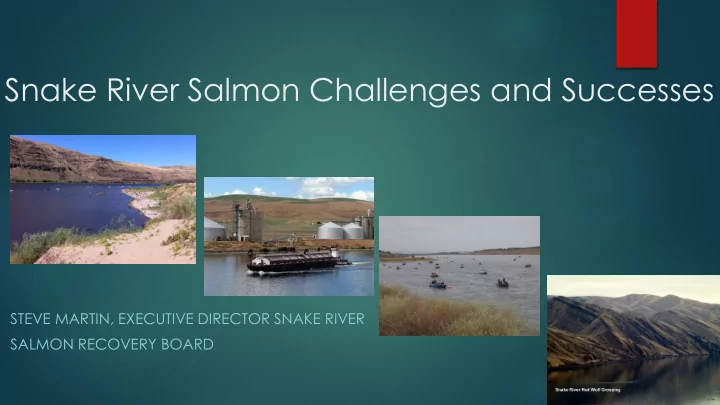

Snake River Salmon Challenges and Successes STEVE MARTIN, EXECUTIVE DIRECTOR SNAKE RIVER SALMON RECOVERY BOARD
Extinction is Not and Option The Washington Way
Messages Snake River Recovery Plan is based on the hydropower system as part of the environmental baseline Plan notes that survival improvements are needed but it does not quantify needed improvements, i.e., the plan is non-regulatory The assessment and analysis indicate recovery is possible by improving habitat and describes strategies to improve harvest and hatchery programs but does not prescribe exact measures Maintaining the hydropower system will require improvement to the other H’s Restoring tributary habitat which will require concerted, long term investments to provide response and ensure confidence to regulators in a threats evaluation scenario Restoring tributary habitat is beneficial for salmon and for entire ecosystems, communities, and agriculture One cost avoidance example from restoring watersheds is the decrease need for channel dredging and disruption to commerce It is time to partner salmon with business and develop collaborative solutions We need to work together to inform congress that we need their support because the ESA is a federal regulation that is less expensive to respond to with action than with litigation and far more effective for everyone
Challenges and Successess Everyone prefers more salmon, cleaner water and a healthy environment Salmon populations are much better than 20 years ago and improving More work lies ahead and we are well positioned to get the job done Mutually beneficial outcomes are a reality Partnerships can be successful but challenging Healthy salmon runs are good for Pacific Northwest business, culture, and communities
Response to Habitat Work
Adult Abundance in Tributaries to the Snake River within Washington
Adult Abundance in Tributaries in Washington below the Snake River
Recommend
More recommend